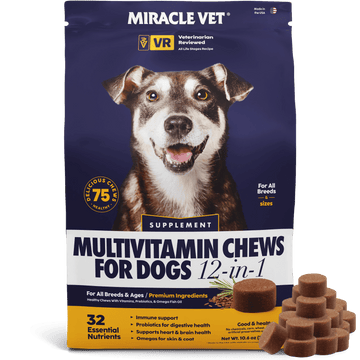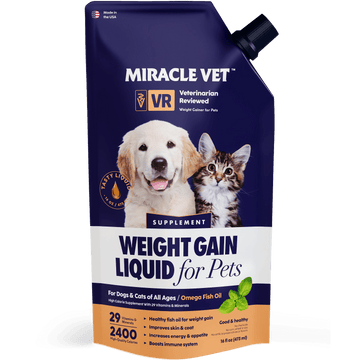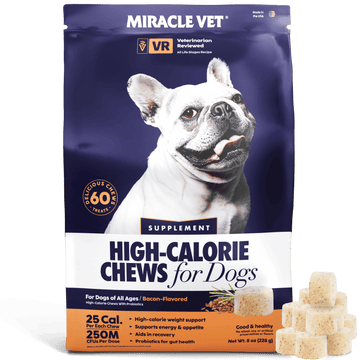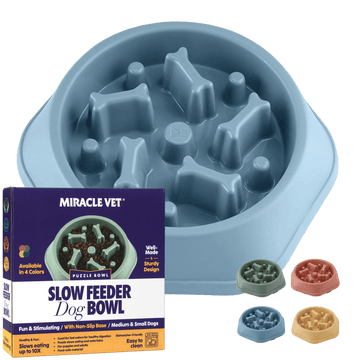As our canine companions age, their exercise needs, nutritional requirements, and recovery abilities change. It's our responsibility as pet parents to adapt their routines to ensure they enjoy their golden years to the fullest. In this blog post, we'll explore the art of exercising, providing proper nutrition, and facilitating recovery for your older dog.
How to Exercise an Older Dog
Just like humans, older dogs benefit from regular exercise to maintain their physical and mental well-being. However, adjustments are necessary to accommodate their changing bodies:
Low-Impact Activities
Opt for low-impact exercises like leisurely walks, gentle swims, and slow games of fetch to avoid putting unnecessary strain on ageing joints. Keep an eye on your older dog during activities as if they start to lag behind, look to be stiffening up or reluctant to jump or run then they may have done a little too much and need a rest.
Short and Frequent Exercises
Break exercise sessions into shorter, more frequent intervals to prevent overexertion and fatigue.
Dog Puzzles
Engage your senior dog's mind with puzzle toys and scent-based activities to stimulate cognitive function. Slow feeding bowls are a great way of introducing puzzle activities at meal times.
Pain Monitoring
Pay close attention to any signs of discomfort or pain during and after exercise, as older dogs are more prone to joint issues.
Feeding Your Older Dog
A balanced and appropriate diet is crucial for maintaining the health and vitality of your older dog:
Quality Ingredients
Choose high-quality, easily digestible dog food formulated for senior dogs. Look for protein sources like lean meats to support muscle maintenance.
Added multivitamin chews and high calorie dog foods can help support your older dogs nutritional needs.
Joint Support
Incorporate foods rich in omega-3 fatty acids and glucosamine to promote joint health and ease any discomfort.
Hydration
Ensure your senior dog has constant access to fresh water to prevent dehydration, which can exacerbate health problems.
How does an older dog’s weight change?
As dogs get older you may find their metabolism changes, but this will vary dog to dog.
My older dog is putting on weight.
Some dogs will start to put weight on as their metabolism slows and they are less active, this needs to be carefully monitored as excess weight can put pressure on joints and a higher body fat can put stress on organs.
If your dog is gaining fat/weight, you may want to switch to a higher protein/fibre diet that has less fat content. You can also use a weight loss supplement to keep their energy up and burn fat.
Portion control is essential, with smaller portions you can regulate their calorie intake and add extra snacks and meals if necessary. A slow feeding bowl will help stop overeating as your dog will recognise when they are full.
My older dog is losing weight.
Some dogs as they age will lose weight, this can be for a number of reasons such as poor digestion, reduced appetite, and sometimes can be a symptom of an underlying medical problem.
If your ageing dog is losing weight then you can increase portion sizes or number of meals per day.
You can also add high calorie chews and treats, these can help encourage play as well as giving your dog essential calories and a boost of energy on walks.
If your dog is refusing to eat you can use our weight gain liquid to help give added calories and stimulate their appetite.
If your dog is losing weight, especially quickly, then you should always consult with your veterinarian to make sure there is no underlying medical condition.
Recovery and Comfort
Recovery becomes more important as dogs age. Ensure their comfort and well-being by:
Rest and Sleep
Older dogs need more rest. Provide a comfortable and supportive bed where they can rest and sleep peacefully.
Warmth
Keep them warm, especially in colder months, as older dogs can be more sensitive to temperature changes.
Massage and Gentle Touch
Massage can help relax their muscles and promote circulation. Gentle touch and attention also provide emotional comfort.
Veterinary Care
Regular check-ups are essential to catch any age-related health issues early and ensure your senior dog's well-being.
Exercising, nourishing, and supporting your older dog requires a thoughtful approach that takes into consideration their changing needs. By tailoring their exercise routine, providing them with a well-balanced diet, and offering the necessary recovery and comfort, you can ensure that your loyal companion enjoys their senior years in good health and happiness. Remember, every dog is unique, so consult with your veterinarian to create a personalized plan that suits your older dog's specific requirements, enabling them to age gracefully while still living life to the fullest.
For tips and advice on how to support your canine companion from puppy to senior, subscribe to our newsletter.











